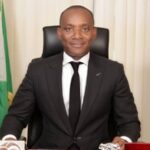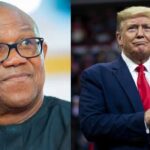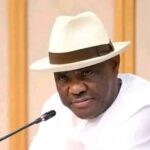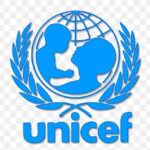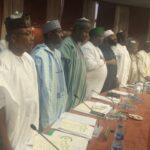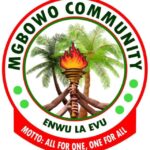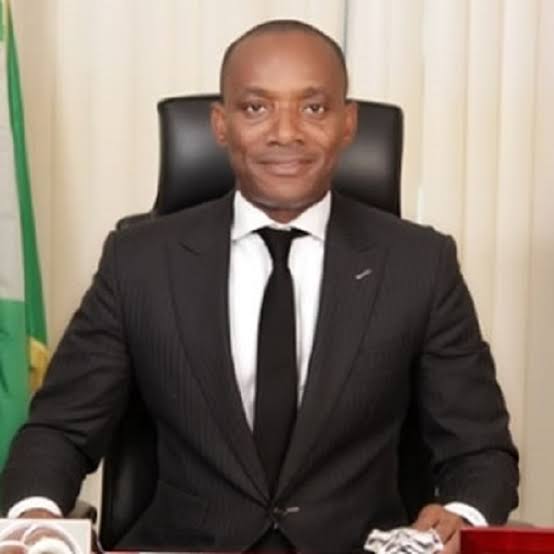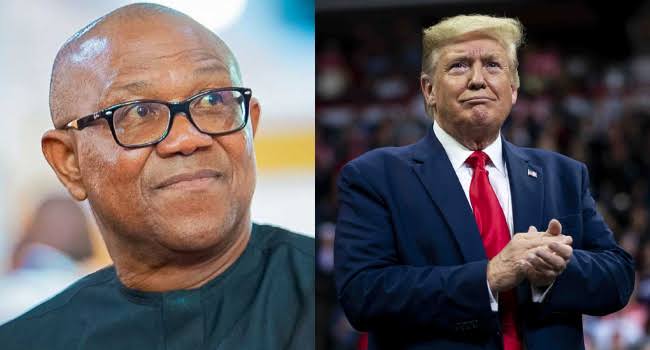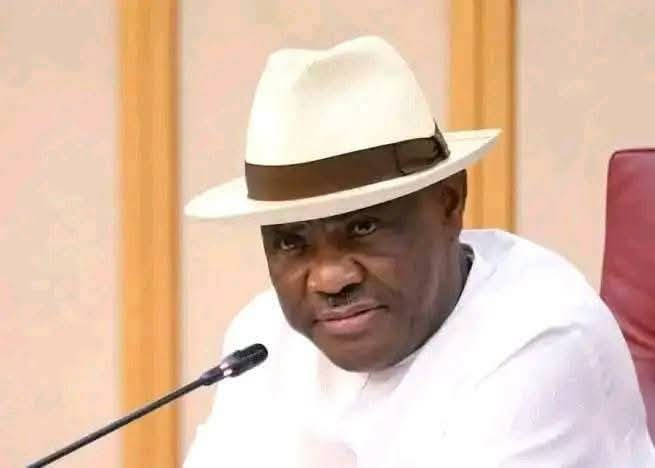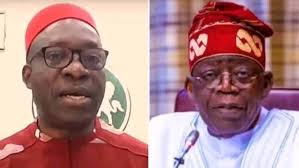Nigeria has a natural role to play in stabilising West Africa, deepening democracy in the sub-region, and keeping military coups and coupists at bay. Being a medium power, Nigeria has the obligation of guiding West Africa by maintaining democracy, peace, and stability throughout the sub region. It is crucial to examine some of the strong arguments against military coups in West Africa before discussing Nigeria’s position in the region’s democracy and stability. In addition to being autocratic, military regulations subject its subjects to inhumane treatment.
Approximately seven democratically led African nations -Mali, Chad, Guinea, Sudan, Burkina Faso, Gabon and Niger (four of which are in West Africa)- have been overthrown by the military since August 2020. Just recently patriotic forces with regional support thwarted yet another attempt to resurrect military rule via coup d’etat in Sierra Leone and Guinea Bissau. Remarkably, a sizable portion of Africans have expressed support for military rule to return to the continent. Furthermore, an increasing proportion of them believe that their countries would benefit more from a military government rather than democracy since they believe that democracy has been corrupted by politicians.
Unbeknownst to these individuals, however, is the true adage that “the worst form of democracy is better than the best form of military rule.” There are strong arguments against the attempt to bring the West African sub region under military control again.
Despite its difficulties, democracy is historically preferred as a form of government because of the peace and stability it provides. For good reason, democracy is currently regarded as the best type of government in the world. Among other things, democratic societies defend the freedom of speech, uphold the rule of law, impose stable political systems and periods of office, hold free and fair elections, and encourage the independence of the press and media.
The sub region has suffered greatly from military control. Using Nigeria as an example, let’s examine this pattern and the drawbacks of military rule in West Africa:
- Nigeria’s economy was devastated and the country’s civil service, which was the best in Africa, was destroyed between 1966 and 1999 when the country, with only a tiny portion of time, was under military administration.
- Nigerian culture suffered throughout the duration of military control, and an educational system that rivalled the best in the world was destroyed. Corruption, thievery, and injustice become commonplace in society when the military assumes a dominant role in the government. People in West Africa have made entrenched corruption their number one nemesis, especially in Nigeria.
- Because a military regime suppresses due process and the rule of law, corruption permeates most government institutions and is prevalent everywhere.
- Human life is the most valuable resource in the world, and any system that jeopardises or disregards it is immoral, harmful, and ought to be discarded.
- The dehumanisation of civilians occurs when military authority is in place, all in the name of upholding law and order.
- The military deliberately infringes on fundamental liberties and rights while posing as the nation’s order keepers. Individuals not only lose all freedom of speech and conscience but are also forced to suffer at the hands of armed individuals who brutally pretend to be demigods.
- West African countries’ diverse military regimes are to blame for the fragmentation and collapse of public institutions like educational systems, as well as the institutionalisation of nepotism, corruption, and the large-scale theft of public funds.
- A political system known as military rule occurs when the military, an institution headed by a single man, holds near absolute authority. Throughout human history, the concentration of power in one person or just a few individuals has always proved destructive; the Nigerian example is hardly unique in this regard. No human being is worthy enough to be given complete control over a state’s authority as well as its inhabitants’ rights and life.
- There is no question that the military ruler’s concentration of power in the hands of a few military despots has led to terrible misuse of power and the violations of human rights.
- Decisions that tend to undermine national unity and cohesiveness are made with unprecedented arbitrariness and impunity under military regimes; many of these decisions have unfavourable effects that cannot be undone.
- The people do not create constitutions through military decrees. A military ruler issues decrees that the whole nation must follow, subjugating the nation to the will of a single man who acts as God.
- Unlike democracy, which is the rule of law personified, military power is typically held by the whims and caprices of a few individuals . As a result, national development under military rule is unpredictable and biased in favour of the military ruler’s whims. Soldiers who overthrow the government in a coup disregard the law and the constitution.
- In a democracy, it is impossible to consider accountability in a military setting. Nobody can hold the clique accountable, and those who dare criticise their actions are either killed or banished. Some even paid with their lives or vanished without warning and trace.
- The responsibility for holding the government accountable to the public and the media is assigned by the Nigerian constitution. However, when the military is in charge, press freedom is usually seen as a danger, and every attempt is made to restrict the media and public space—often with brutality. Journalists who criticise a military dictatorship frequently face kidnapping, detention, and physical harm. A few perished.
- If a nation adopts military rule, it bears the risk of cutting off relations with a number of other nations and international organisations, including the United States, the United Kingdom, and the United Nations (UN). Numerous foreign donors that aid Nigeria and other West African countries in a number of crucial areas will stop doing so.
- Because of the militarization of the nation during a coup, citizens live in continual fear and anxiety.
- The use of violence by the government is common in nations under military dictatorship. Military leaders may try to impose their own laws by simulating the rule of law. This is conceited. Regardless of the justification for the military intervention, military rule is inherently bad since it subverts the nation’s constitution and the will of the people.
- Military control is cruel, harsh, arbitrary, and unaccountable. It obstructs advancement and development since it is out of step with modern times. The most significant drawback of military authority arises when a nation’s political structure degenerates into chaos. The primary drawback of military control is that nobody has the power to ask questions.
In a democracy, the people make free and informed decisions about how to run the state. Equally too, in a democracy, everyone has the right to live. Under democratic conditions, everyone is expected to have equal protection under the law and in the eyes of the court.
Above all, democracy is a system of governance that recognises citizens’ inherent rights as fellow human beings.
Human rights are privileges that people have simply for being human, and while democracy defends these rights, the military tramples on them, treats individuals like objects, and takes away their freedoms. Military authority also emasculates courts that are thought to be the last bastion of hope for the average person.
Democracy maintains that all citizens are equal under the law and does not recognise any group of people as superior to another. Contrarily, military doctrine maintains that “some animals are more equal to others.”
One man, one vote is provided by democracy, allowing voters the power to select representatives or rulers for themselves. Since democracy is based on the freedoms of association, thought, and choice, it provides citizens with the best opportunity to contribute their fair share to the advancement of the country.
In a democratic state, the government is stable. Stability comes from democracy. In a democratic state, at least, you will go to sleep knowing when the next election-based government change as mandated by law occurs.
Nigeria’s role is protecting West Africa’s democracy and averting a return to military rule.
Nigeria naturally has a part to play in maintaining sub-regional democracy, stabilising West Africa, and thwarting military takeovers and coup plotters. Nigeria is a medium power, and the idea of Nigeria as a medium power entails a duty to guide and influence the sub-region of West Africa by guaranteeing the endurance and sustenance of democracy, peace, and stability.
Nigeria is already playing this important role using the ECOWAS platform, where it is a major player both financially and otherwise. But much more work needs to be done in this direction with greater vigour. Nigeria, the most populous country in Africa and having the largest concentration of people of black descent worldwide, ought to imitate the American Good Neighbour Policy and play a more deliberate role in West Africa.
Nigeria must hence insist on democracy and a set term or terms for the presidents of the sub-region’s member countries to promote peace and stability in the area. Nigeria must demand free, fair, and credible elections for the people of the sub-region to be able to pick who will lead and represent them.
Fortunately, Nigeria’s President Bola Ahmed Tinubu currently leads ECOWAS, making him capable of resetting the sub-regional organisation, putting in place the required frameworks, and establishing an aggressive agenda that will reposition the West African sub-region.
In our follow up bulletin we intend to provide an agenda setting framework that will guide the President of Nigeria who also doubles as the Chairman of ECOWAS Heads of State in formulating proactive, interventionist and preventive diplomacy measures aimed at Sustaining, Strengthening and Consolidating Democracy in West Africa; indeed across the whole length and breadth of Africa.
Comrade Aliyu Musa Ahmed
Regional Coordinator
Comrade Moses Ekwuaba
Director of Regional Democracy Alert
Comrade Abiodun Tunde Adekanye
Director of Special Democracy Projects
ON BEHALF OF SAVE DEMOCRACY GROUP- WEST AFRICA
Comprising the Following Platforms:
- West African Network of Democracy and Good Governance
- Let Democracy Breathe Coalition
- Media for Protection of Democratic Rights
- West African Citizens Democratic Alliance
- Democracy Forever International
- Centre for Democracy and Constitutional Order
- People’s Initiatives for Democratic Sustainability and Accountability

